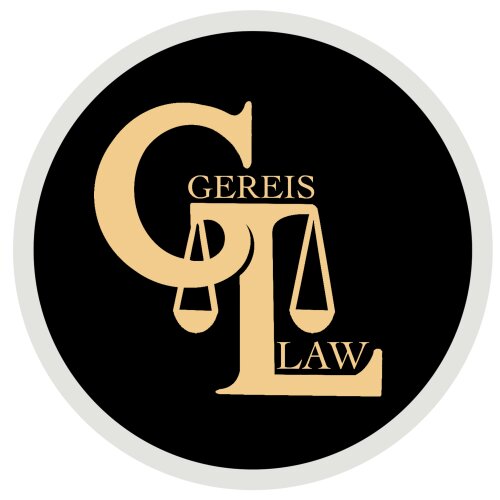Best General Litigation Lawyers in Vermont
Share your needs with us, get contacted by law firms.
Free. Takes 2 min.
Or refine your search by selecting a city:
List of the best lawyers in Vermont, United States
About General Litigation Law in Vermont, United States
General litigation in Vermont refers to the legal process of resolving disputes between parties through the court system or alternative methods such as mediation and arbitration. Litigation can involve individuals, businesses, governmental agencies, or organizations. Common matters falling under general litigation include contract disputes, property issues, tort claims, landlord-tenant disagreements, personal injury, and more. Vermont’s legal system is grounded in both state and federal law, and its court system consists of trial courts, superior courts, and appellate courts that address various civil matters.
Why You May Need a Lawyer
Engaging a lawyer knowledgeable in general litigation is often crucial due to the complexity and procedural requirements of the legal system. Here are situations where legal help may be necessary:
- You are being sued or need to file a lawsuit.
- You are involved in a contract dispute or breach of agreement.
- You experience property or boundary disagreements with neighbors.
- You are facing employment issues such as wrongful termination or discrimination.
- You suffer personal injury due to someone else's actions.
- You need to resolve issues related to consumer rights or business transactions.
- You are a landlord or a tenant in a rental dispute.
- You wish to appeal a decision made by a lower court or administrative body.
Legal counsel can help you understand your rights, present your case effectively, and navigate court procedures unique to Vermont.
Local Laws Overview
Vermont’s general litigation landscape is shaped by the Vermont Rules of Civil Procedure and relevant statutes found in the Vermont Statutes Annotated. Here are key aspects to consider:
- Time Limits - Statutes of Limitation: Legal claims in Vermont must usually be made within specific time frames, depending on the type of case. For example, personal injury claims typically have a three-year limitation.
- Pre-Litigation Requirements: Some cases require mediation or notice to the other party before going to court.
- Small Claims Court: Vermont’s small claims process provides a streamlined way for individuals and businesses to resolve disputes involving smaller sums.
- Discovery and Evidence: Vermont courts follow specific rules about sharing information (discovery) and presenting evidence.
- Appeals Processes: Decisions of the trial courts can often be appealed to the Vermont Supreme Court or to a higher court, but strict filing rules apply.
- Alternative Dispute Resolution: Vermont encourages the use of mediation and arbitration to resolve disputes outside of court when possible.
Understanding these rules helps ensure that you do not forfeit your rights or miss important deadlines.
Frequently Asked Questions
What is the first step if I want to file a lawsuit in Vermont?
The first step is typically to file a complaint with the appropriate court. This document sets out your claims and what you are seeking. Consulting with a lawyer can help ensure you file in the right venue and meet all procedural requirements.
How long do I have to file a lawsuit in Vermont?
The statute of limitations varies by case type. For example, personal injury claims generally have a three-year statute of limitations. Failing to file within the designated period may result in your case being dismissed.
Can I represent myself in Vermont courts?
Yes, you have the right to represent yourself (pro se) in Vermont civil cases. However, court procedures can be complex, and having a lawyer often increases your chances of a favorable outcome, especially in intricate matters.
What is small claims court and when can I use it?
Small claims court is a simplified court process for resolving disputes involving smaller amounts of money. As of 2024, the maximum claim is 5,000 dollars. It is designed to be user-friendly and quicker than regular civil court.
What happens during mediation?
Mediation is a process where a neutral third party helps the disputing parties negotiate a settlement. Vermont courts may require mediation before trial, especially in civil cases. Mediation is less formal and more collaborative than a court trial.
Do I always have to go to court to resolve a dispute?
No, many disputes are resolved through negotiation, mediation, or arbitration before reaching court. Vermont encourages alternative dispute resolution to save time and expenses.
What are common types of general litigation matters in Vermont?
Common matters include contract disputes, property disagreements, personal injury claims, landlord-tenant conflicts, business disputes, and consumer protection issues.
How much does it cost to hire a general litigation lawyer in Vermont?
Legal fees vary depending on the complexity of the case and the lawyer’s experience. Some lawyers charge hourly rates, while others may offer flat fees or contingency arrangements for specific case types. Request a fee agreement in writing before starting representation.
What if I lose my case?
If you lose, you may have to pay court costs and, in some cases, the other party’s legal fees. You may also have the right to appeal the decision, but deadlines are strict and procedures must be followed closely.
Where can I find legal forms and resources for Vermont courts?
The Vermont Judiciary website and self-help centers offer legal forms, guides, and information for those representing themselves or seeking general information about legal processes in the state.
Additional Resources
For more information or assistance with general litigation matters in Vermont, consider the following resources:
- Vermont Judiciary: Provides legal forms, rules, court locations, and self-help guides.
- Vermont Bar Association Lawyer Referral Service: Connects individuals with qualified attorneys for initial consultations.
- Vermont Legal Aid: Offers free or low-cost legal help for eligible individuals in civil matters.
- Vermont Law Library and Self-Help Centers: Provide resources and guidance to those handling legal matters without a lawyer.
- County Superior Courts: Local court clerks can provide information about case status, scheduling, and filing procedures.
Next Steps
If you believe you need legal assistance in a general litigation matter in Vermont, consider the following actions:
- Gather all relevant documents and information related to your dispute.
- Consult with an attorney to understand your rights, responsibilities, and possible legal strategies.
- Contact a local bar association or lawyer referral service for help finding a qualified lawyer.
- If financial resources are limited, reach out to Vermont Legal Aid for possible assistance.
- Review local court procedures and make sure you are aware of all deadlines that may apply to your case.
Taking timely action and seeking knowledgeable legal advice is the best way to protect your interests and successfully navigate the general litigation process in Vermont.
Lawzana helps you find the best lawyers and law firms in Vermont through a curated and pre-screened list of qualified legal professionals. Our platform offers rankings and detailed profiles of attorneys and law firms, allowing you to compare based on practice areas, including General Litigation, experience, and client feedback.
Each profile includes a description of the firm's areas of practice, client reviews, team members and partners, year of establishment, spoken languages, office locations, contact information, social media presence, and any published articles or resources. Most firms on our platform speak English and are experienced in both local and international legal matters.
Get a quote from top-rated law firms in Vermont, United States — quickly, securely, and without unnecessary hassle.
Disclaimer:
The information provided on this page is for general informational purposes only and does not constitute legal advice. While we strive to ensure the accuracy and relevance of the content, legal information may change over time, and interpretations of the law can vary. You should always consult with a qualified legal professional for advice specific to your situation.
We disclaim all liability for actions taken or not taken based on the content of this page. If you believe any information is incorrect or outdated, please contact us, and we will review and update it where appropriate.
Browse general litigation law firms by city in Vermont
Refine your search by selecting a city.














